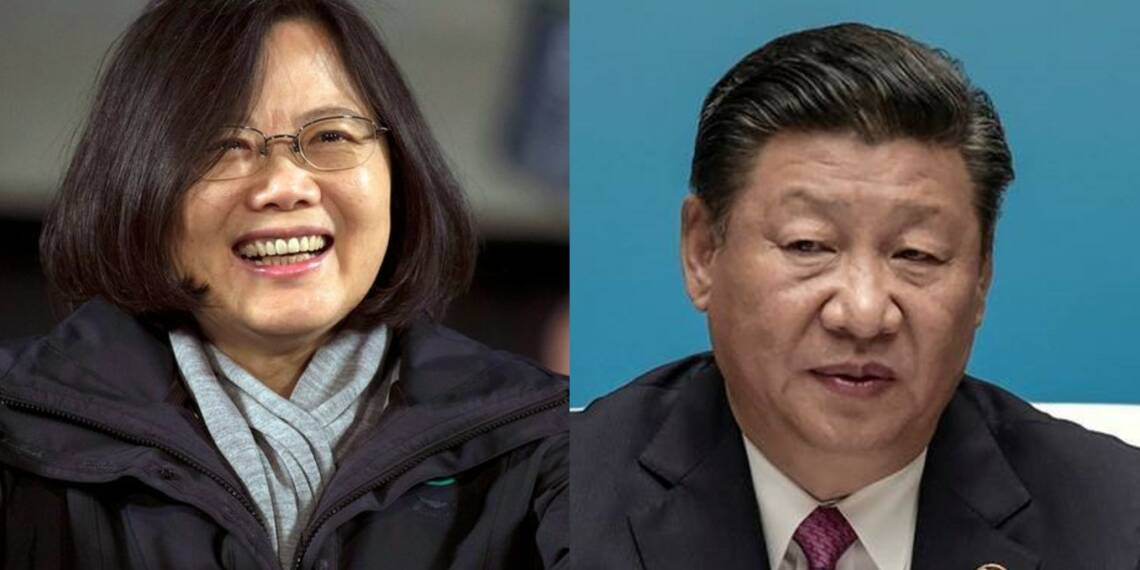If China’s pledge to punish countries defying its contentious “One-China policy” is really genuine, it must prepare a nice burial for itself. That’s because the latest country to defy the One-China policy is China itself.
China sanctions three Taiwanese leaders:
China on Friday declared that it will impose sanctions on Taiwan’s three secessionist leaders. Taiwan’s Premier Su Tseng-chang, Foreign Minister Joseph Wu and Legislative Speaker You Si-kun got sanctioned the same day, prompting celebrations in Taiwan as foreign minister Joseph Wu took to Twitter to thank China for recognising his efforts towards peace and freedom.
I've received countless notes of congratulations after being blacklisted & sanctioned, for life, by the #CCP. Many are jealous for not being recognized; some ask where they can apply for it. To deserve the rare honor, I'll keep fighting for #Taiwan's freedom & democracy. JW
— 外交部 Ministry of Foreign Affairs, ROC (Taiwan) 🇹🇼 (@MOFA_Taiwan) November 6, 2021
Wu tweeted, “I’ve received countless notes of congratulations after being blacklisted & sanctioned, for life, by the CCP. Many are jealous for not being recognized; some ask where they can apply for it. To deserve the rare honor, I’ll keep fighting for Taiwan’s freedom & democracy.”
After getting blacklisted by China, the three Taiwanese leaders won’t be able to visit the CCP-ruled mainland China, Macau, and Hong Kong. That means the three leaders can only visit China after the CCP is ruled out from China. All in all, it won’t be long before these sanctions are rendered nullified as the CCP stares its imminent collapse in the eye.
China violates One-China policy:
But here is one more interesting angle to this story. Some analysts fear that in its quest to rein in the secessionist movement in Taiwan, China might have crossed its own red lines by treating the island as a sovereign nation.
Henry Gao, a law professor specialising in China, pointed out on Twitter how China’s recent sanctions against Taiwanese leaders defy Beijing’s One-China policy. In his tweet, Gao argues, “China announced punishments against 3 Taiwan Separationists today based on “relevant laws”, but what exactly is the legal basis? These measures are taken almost verbatim from Art. 6 of the Anti-Sanctions Law enacted in June. So maybe this is the legal basis? But this creates another BIG problem.”
In his next tweet, Gao progresses on to describe how China’s One-China policy fell prey to its own adventurism against the island nation. He writes, “Article 3 of the Law states that it only applies to foreign countries. So the only logical conclusion of applying sanctions according to the Anti-Sanctions Law is admitting that China is now treating Taiwan as a foreign country, under its own laws.”
Art. 3 of the Law states that it only applies to foreign countries. So the only logical conclusion of applying sanctions according to the Anti-Sanctions Law is admitting that China is now treating Taiwan as a foreign country, under its own laws. pic.twitter.com/itzdsQ4DbZ
— Henry Gao (@henrysgao) November 5, 2021
China’s anti-Taiwan propaganda loses sheen:
China’s sanctions on Taiwanese leaders show how Beijing’s propaganda war against the island nation has lost its bearings and sheen. In the past month, China has stoked Taiwan tensions so much that it has now started sowing seeds of a civil war in mainland China, causing massive destabilisation and panic-buying in the Chinese markets.
So, China chose to quash the mobilization rumours by hurriedly imposing sanctions on the Taiwanese leaders, without even considering its legality and applicability. China thought the move will help it deflate the ballooning rumour market on Chinese social media; instead, it ended up according Taiwan with the status of a sovereign nation.
Taiwan’s growing support in the democratic world:
Taiwan’s growing cachet in the democratic world has unnerved China in a big way. Recently, a European Parliament delegation made a historic visit to Taiwan, sending a loud and clear message to Beijing that “Taiwan is not alone” in its fight against injustice and tyranny. Raphael Glucksmann of France, who led the European Parliament delegation, told a press conference before departing Taiwan, “I don’t think that anybody of this delegation is afraid of any form of sanction.”
Apart from the EU, countries like India, Japan and Australia are also stepping up their engagements with Taiwan. Also, Republicans in Congress have proposed legislation seeking to provide $2 billion in military aid to Taiwan every year. Japan and Australia are believed to have started discussing joint ways to deter any Chinese invasion of the Taiwanese territories. Hence, China is growing impatient with every passing day on the Taiwan front.
So, to reinforce its commitment towards Taiwan unification ambitions, a desperate China is now using its own laws to infringe upon China’s sovereignty. Considering Xi Jinping’s burgeoning paranoia and anxiousness, it won’t be an exaggeration to predict a warring Jinping to wage an all-out offensive against Beijing to teach China, and others on the sidelines, a lesson of its lifetime.








